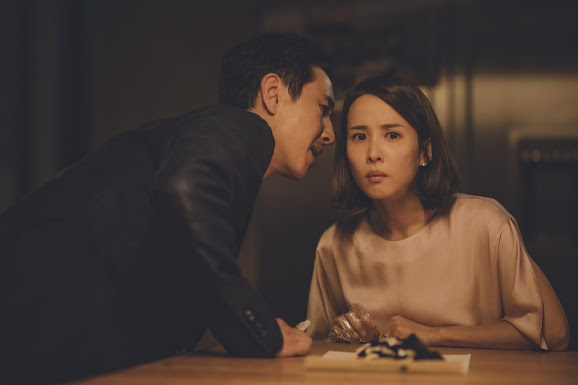Nominated For: Best Picture, Best International Feature Film, Best Director; Bong Joon-Ho, Best Original Screenplay, Best Film Editing, and Best Production Design.
Won: Best Picture, Best International Feature Film, Best Director; Bong Joon-Ho, and Best Original Screenplay.
Runtime: 132 minutes
MPAA Rating: R (for language, some violence, and sexual content)
Who should see it? Adults who don't mind reading subtitles since all of the dialogue is spoken in Korean. Parasite is the latest offering from South Korean filmmaker Bong Joon Ho. You may have heard rumblings about Parasite considering it won the Palm D'Or (grand prize) at the Canne's Film Festival, remains one of the year's best-reviewed films, and also finds itself primed to be a major awards contender in the coming months. There's been a lot of chatter and buzz surrounding Parasite, but the less you know beforehand, the better your experience will be. To aid in preserving the mystery, I've provided a streamlined synopsis and will carefully avoid discussing the plot in too much detail. Though I first watched the film over a month ago, I've patiently bided my time before writing this review because I wanted to do Parasite justice with my analysis. And the flurry of significant November releases caused me to postpone time and time again, which lent me the benefit of a second viewing and plenty of time for reflection. Co-written by Jin Won Han and director Bong Joon Ho, Parasite comments on classism in which the disparity between social classes is emphasized by differences in attitude and elevation. The filmmaking and storytelling are deceptively simple, but there's an abundance of subtext to savor with successive viewings. If you see it again, the stark contrast between the rich and poor families becomes increasingly apparent as you catch onto more parallels distinguishing the two. Otherwise, the narrative's quite engrossing as shocking plot-twists will secure every audience member's undivided attention in addition to drastically altering their perception of the onscreen events. Once you're comfortable yielding to the story's rhythm and feel confident in predicting the outcome, Bong pulls the rug right out from under you. Recently, it's become trendy to belittle clever twists as an act of "subverting expectations" for the sake of surprise. However, these twists aren't implemented for the contrived purpose of shock-value. Bong Joon Ho stealthily lays the groundwork, but it's easy to overlook seemingly insignificant details on first viewing, provided nothing's been spoiled. Since all of the dialogue in Parasite is spoken in Korean, I suspect a subset of potential viewers may deter from watching. With that in mind, it's worth noting that Parasite is very accessible. Reading subtitles will quickly become a subconscious act as you're drawn in by a story that's equal parts funny, suspenseful, dramatic, and insightful. Concerning craftsmanship, the Park family home created by production designer Lee Ha Jun is particularly impressive. The set is immaculately detailed, to the degree that the Canne's jury of directors was also duped by their illusion. Bong and Lee considered several factors into planning the layout, including blocking and a minimalist approach. Once Bong establishes the geography, he stages elaborate sequences that are heightened by the viewer's familiarity with this space. Meanwhile, the cinematography, editing, and score work in tandem to further supplement Bong's vision.
At its core, Parasite is bolstered by a sublime ensemble. Across the board, the cast is expressive, employing universal mannerisms, and wonderfully communicate the emotion of the scene in spite of a language barrier. Their performances never verge on overacting though, teetering between subtle and articulate. The Kim family portrayed by Song Kang Ho, Chang Hyae Jin, Choi Woo Shik, and Park So Dam evoke the genuine chemistry of a tight-knit unit. On the flip-side, the Park family is distant and aloof, as depicted by Lee Sun Kyun, Cho Yeo Jeong, Jung Ziso, and Hyun-jun Jung. The contrasting family dynamics lend additional weight to Bong's class commentary. Lee Jung Eun also deserves recognition for her humorous stint as the Park's housekeeper, a role that differs significantly with subsequent viewings.
Aptly, Parasite is one of the few films which successfully infiltrated my mind this year. In the time since I've seen it, my thoughts often dwelled on the intriguing narrative threads that were meticulously unraveled by ace filmmaker Bong Joon Ho. If it wasn't clear already, I echo the sentiments of surely everyone who has seen it... See Parasite ASAP!








Completely agree! Are you planning to review any of Bong Joon Ho's upcoming projects?
ReplyDelete